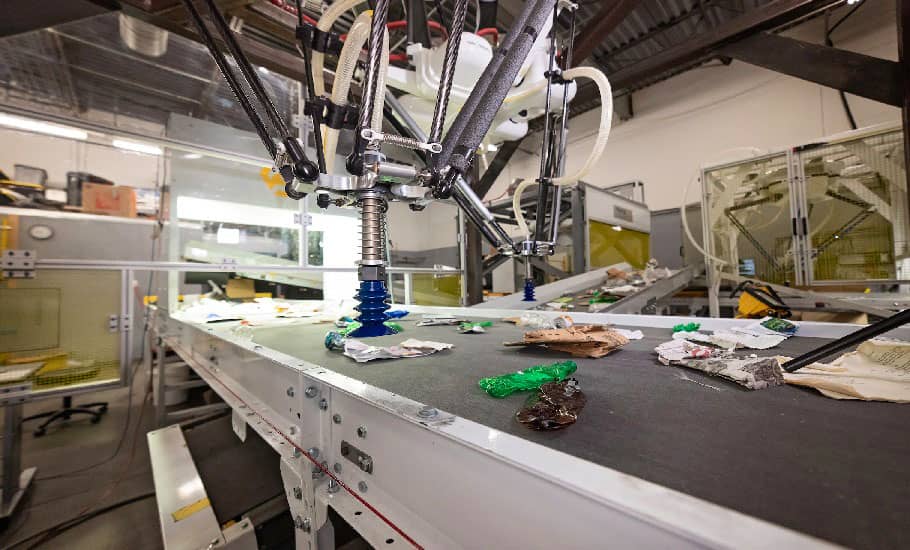Futuristic Recycling: AMP Partners with Waste Connections

AMP's AI-Guided Robotic System
A pioneer in artificial intelligence (AI) and robotics used for recovering recyclable materials as raw materials for the global supply chain, has signed a long-term agreement with Waste Connections, Inc.
("Waste Connections", NYSE: WCN) to deploy twenty-four AI-guided robotic systems.
For example, their artificial intelligence platform precisely identifies different types of plastics, including polyethylene terephthalate (PET or PETE), high-density polyethylene (HDPE), low-density polyethylene (LDPE), polypropylene (PP), and polystyrene (PS), further classified by color, clarity, and opacity, along with different form factors: lids, tubs, shells, cups, and more.
AMP's technology can quickly adapt to packaging introduced into the recycling stream with brand-level recognition capabilities, increasingly critical as the demand grows for sufficient quantities of high-quality recycled material to meet the commitments of packaged consumer resource companies to the use of post-consumer recycled material content.
Since the beginning of COVID-19, the demand for AMP's robotics and artificial intelligence technology has accelerated.
Companies turned to automation to keep employees safe amid social distancing requirements, navigate the ongoing labor shortage to stay operational, and adapt to spikes in residential volume and material types caused by abrupt changes in consumer buying patterns.
AMP experienced a significant increase in orders and interest in deploying its technology on a larger scale to address these challenges, a trend that continues throughout the year.
AMP's deployments span North America, Asia, and Europe, with its recent installation at a facility in Spain.
Within the USA, AMP's presence covers over twenty states, including California, Red, Florida, Minnesota, Michigan, N.
York, Texas, Virginia, and Wisconsin, in addition to those with upcoming Waste Connections installations and other projects under development.
AMP's first North American deployment of its application for construction and demolition debris is scheduled for later this year.
This latest milestone for AMP follows the achievement of one billion picks for its fleet of AI-guided robots over a twelve-month period earlier this year.
In 2020, the company received recognitions including Fortune's "Impact 20", Forbes' "AI 50", and Fast Company's "World’s Most Innovative Companies".
About AMP Robotics company.
AMP Robotics is revolutionizing the world's recycling infrastructure through the application of artificial intelligence and robotics to increase recycling rates and economically recover recyclables as raw materials for the global supply chain.
The high-speed AMP Cortex™ robotic system automates the identification and sorting of recyclable materials from mixed material streams.
The AMP Neuron™ AI platform is continuously trained in recognizing different colors, textures, shapes, sizes, patterns, and even brand labels to identify materials and their recyclability.
Designed to operate 24 hours a day, seven days a week, all this happens at a superhuman speed with extremely high accuracy.
With deployments in North America, Asia, and Europe, AMP's technology recovers recyclable materials from municipal waste, valuable products from waste AMP is manufactured in the USA with headquarters and manufacturing operations in Red.
About Waste Connections
Waste Connections is an integrated solid waste services company that provides non-hazardous waste collection, transfer, and disposal services, along with recycling and resource recovery, in primarily exclusive and secondary markets across forty-two states in the U.S. and six provinces in Canada.
The company serves over seven million residential, commercial, and industrial customers.
Waste Connections also provides treatment and recovery and disposal services for non-hazardous oilfield waste in various basins in the U.S., as well as intermodal services for the movement of cargo containers and solid waste in the Pacific Northwest.
